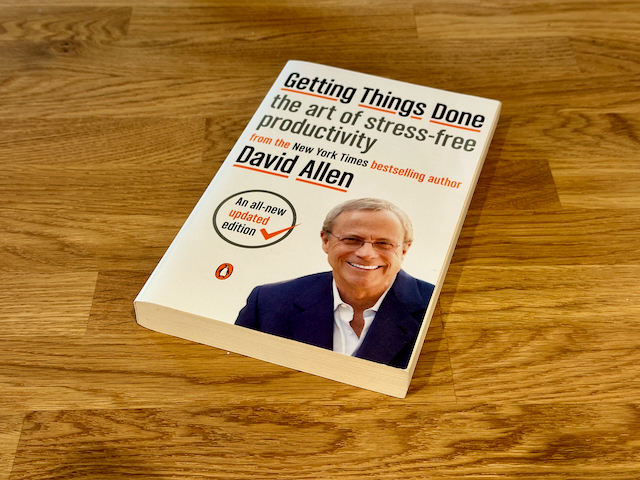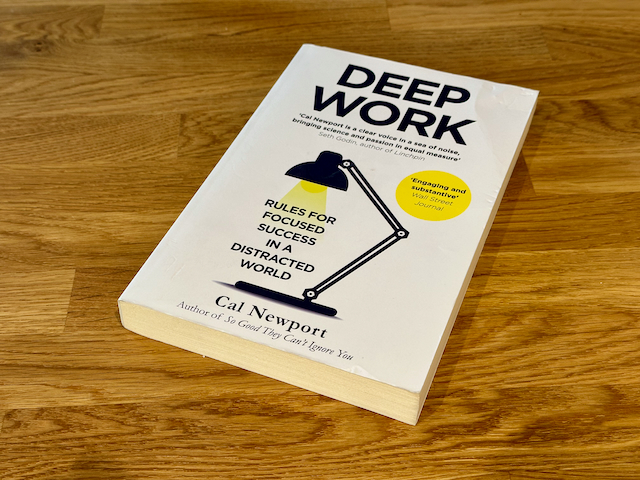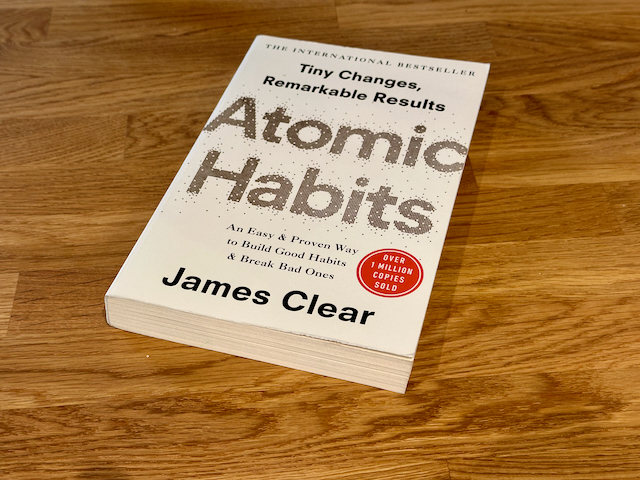Up Your Work From Home Game With These 3 Books
As I look back on my years of remote working, I can’t help thinking about the ever-expanding bookshelf in my home office.
It’s a collection that has grown over time, each new book bringing me valuable insights and practical strategies to boost my productivity.
Today, I’m excited to share some key concepts from three books that have made the biggest impact on my remote work experience.
Let’s jump straight in!
Getting Things Done: The Art of Stress-Free Productivity – by David Allen

“Getting Things Done” by David Allen has been a cornerstone of my productivity toolkit, even before remote work.
I’ve read it multiple times and always learn something new with each review.
How To Get Organised with GTD:
GTD can be boiled down to two main objectives:
- Capture EVERYTHING that needs to get done into a trusted system.
- Translate all those “inputs” into “next actions.”
David Allen’s key advice is to stop relying on your memory to keep track of all your tasks and obligations.
Instead, setup a structured system that not only stores all your tasks and projects but also assists you in executing them at the right moment.
I use ClickUp as my ‘external brain’, but GTD is software agnostic, you can even use a simple notepad.
Self-management becomes even more crucial when working from home and GTD helps to establish a clear, structured system that can significantly reduce stress and improve your productivity.
Deep Work – By Cal Newport

Deep Work by Cal Newport has been instrumental in shaping my work habits.
It’s made me much more conscious about how I use my time and attention.
In the context of remote work, where it’s easier to be distracted and fall into doing nothing but ‘shallow work’, it’s been invaluable in maintaining my productivity and wellbeing.
How To Work Deeply
To work deeply, Cal Newport tells us that we need to focus for extended periods, on one task without distractions.
To do this Newport says we should create routines and rituals that foster deep work.
Here are some practical steps that I’ve found to be helpful in cultivating deep work:
- Set your intention by creating a plan every morning – decide on the high value tasks you want to get done and allocate appropriate time to each of them.
- Minimise phone and computer notifications to minimise distractions.
- Enhance focus by listening to “Focus Music” and wearing noise-cancelling headphones.
- Set a timer for 30-60 minutes and dedicate that time solely to the most crucial task without switching.
- Take short breaks after each session to recharge.
Similar to training a muscle, the more you practice, the stronger your ability to focus becomes.
Atomic Habits: by James Clear

Atomic Habits is another book that I’ve read multiple times!
James Clear outlines a structured framework for creating successful habits, as well as a number of practical tips and tricks for breaking bad ones.
The book is a particularly good resource for remote work to help build habits that support your professional and personal goals.
It challenges the common belief that massive action is needed to achieve big goals.
Instead James Clear provides evidence that small habits done consistently lead to significant improvements over time.
How To Build New Habits
James Clear’s key advise for creating new habits is to use what he calls ‘Habit Stacking’.
As Clear says “By linking your new habits to a cycle that is already built into your brain, you make it more likely that you’ll stick to the new behaviour.”
I’ve used this numerous times since reading the book and it always works!
Here’s a recent example of mine: I wanted to establish a more consistent daily planning routine in the morning.
To do this, I reflected on my existing habits and realised that I always have a cup of coffee when I start work in the morning.
So, I decided to “stack” this habit with my coffee ritual.
Now, I grab my coffee, take out my daily planner, and before diving into emails and other reactive tasks, I set my intentions for the day.
Here’s a simple extension to this idea that I also use:
If you’re pairing your new habit with an enjoyable activity, like my coffee example or maybe watching a Netflix show whilst running on the treadmill, you can tell yourself you are only allowed to do that activity whilst doing your new habit.
This simple adjustment has helped me start each day with focus and purpose.
Habit stacking is a simple practical way to incorporate new behaviors into your life without relying solely on willpower or motivation.
Conclusion
As I look back on my own experience and the countless hours spent reading and re-reading these books, I am amazed at how much they have helped me not only in my work life but also in my personal life.
The concept of “Getting Things Done” may seem simple, but the techniques outlined in David Allen’s book have truly transformed the way I approach tasks and projects.
Cal Newport’s philosophy of “Deep Work” has allowed me to eliminate distractions and focus on important tasks without feeling burned out or overwhelmed.
And lastly, James Clear’s principles of “Atomic Habits” have helped me build small yet impactful routines that have greatly improved my overall productivity.
Whilst I still have moments of struggle and distraction while working from home, these books have given me tools to navigate through them with confidence.
I hope the key concepts from these books can help you too. Explore these strategies, adapt them to your own situation, and let me know if they help!
Also, if you have any suggestions for books you think would help other remote warriors, let me know and I will read, review and summarise them for you!
Until next time!

